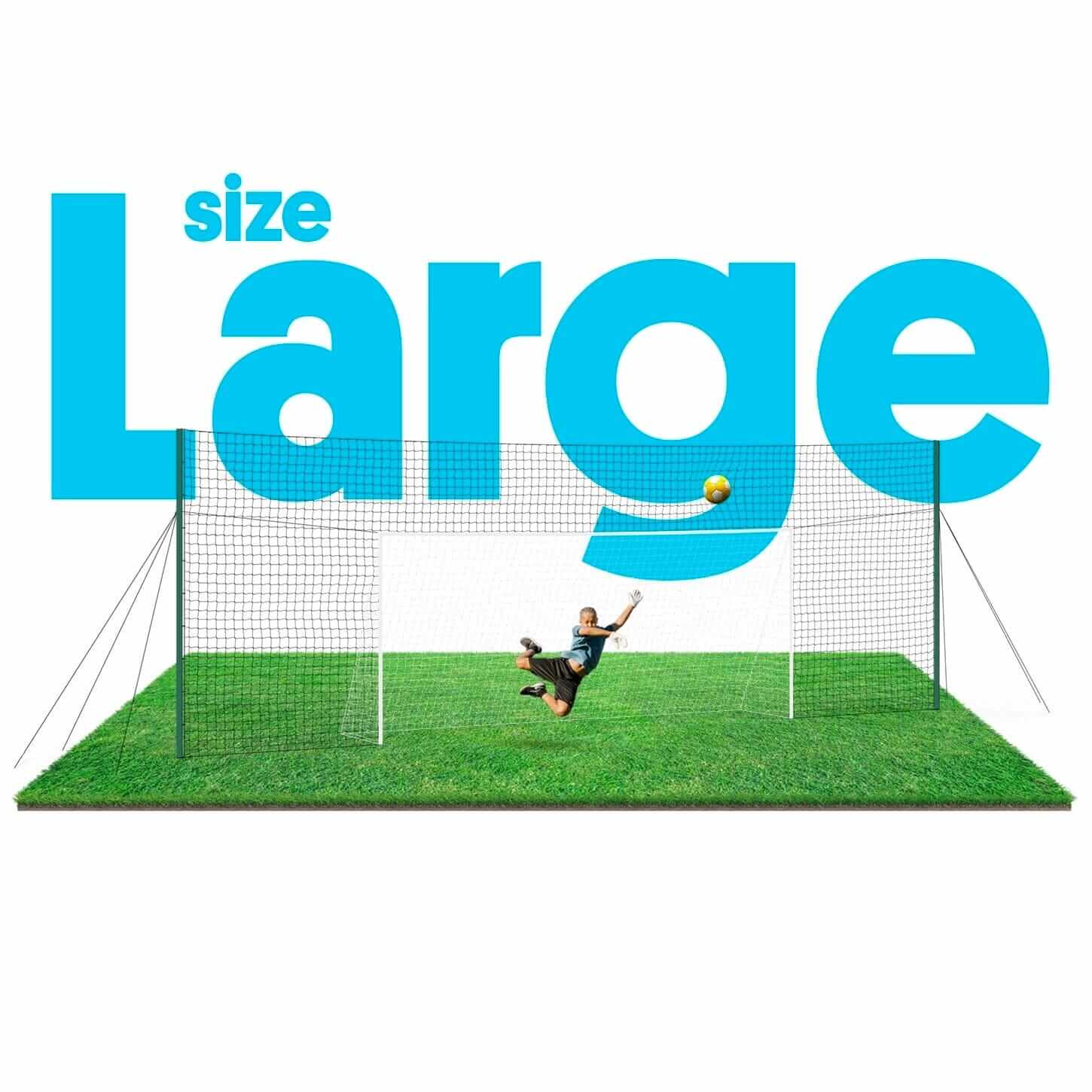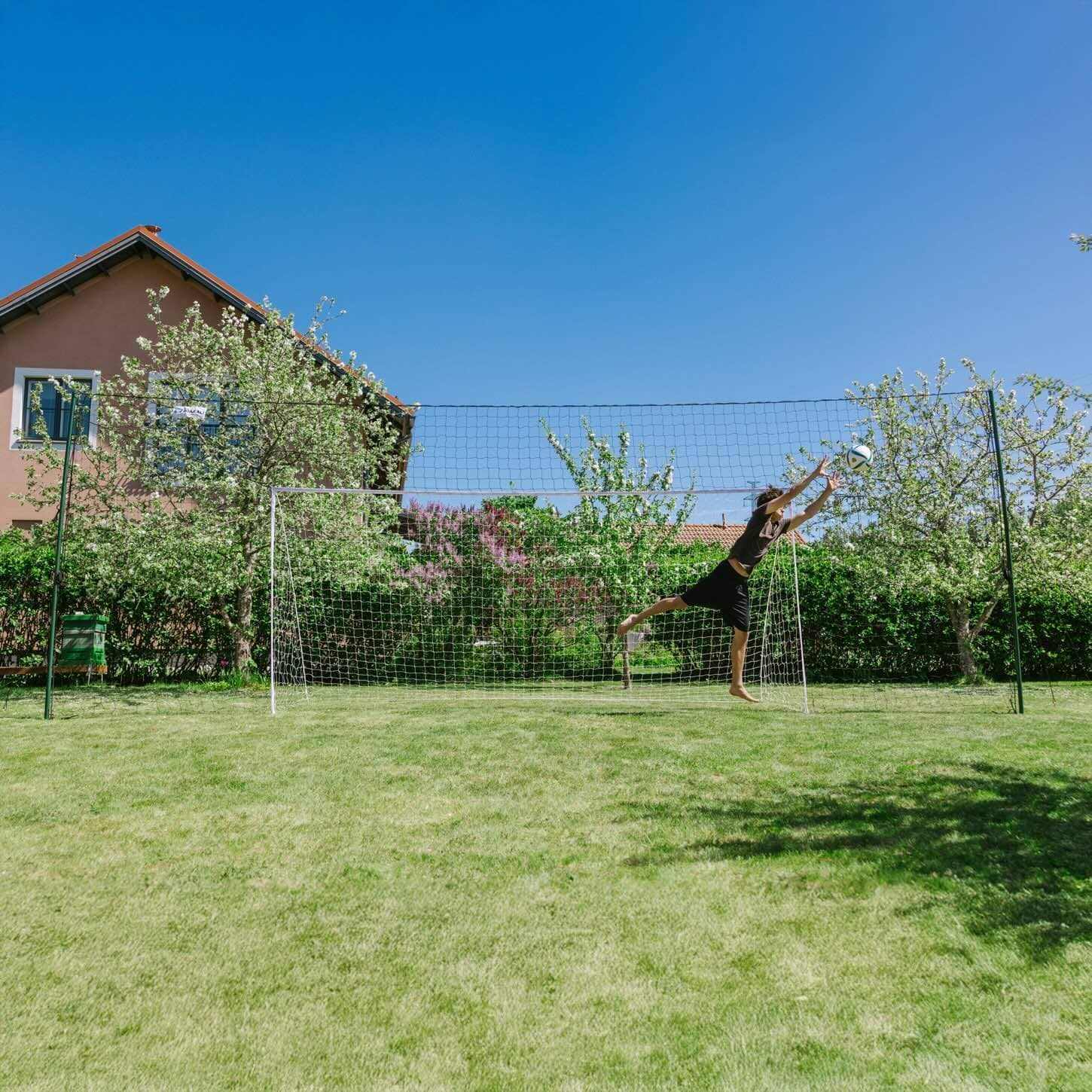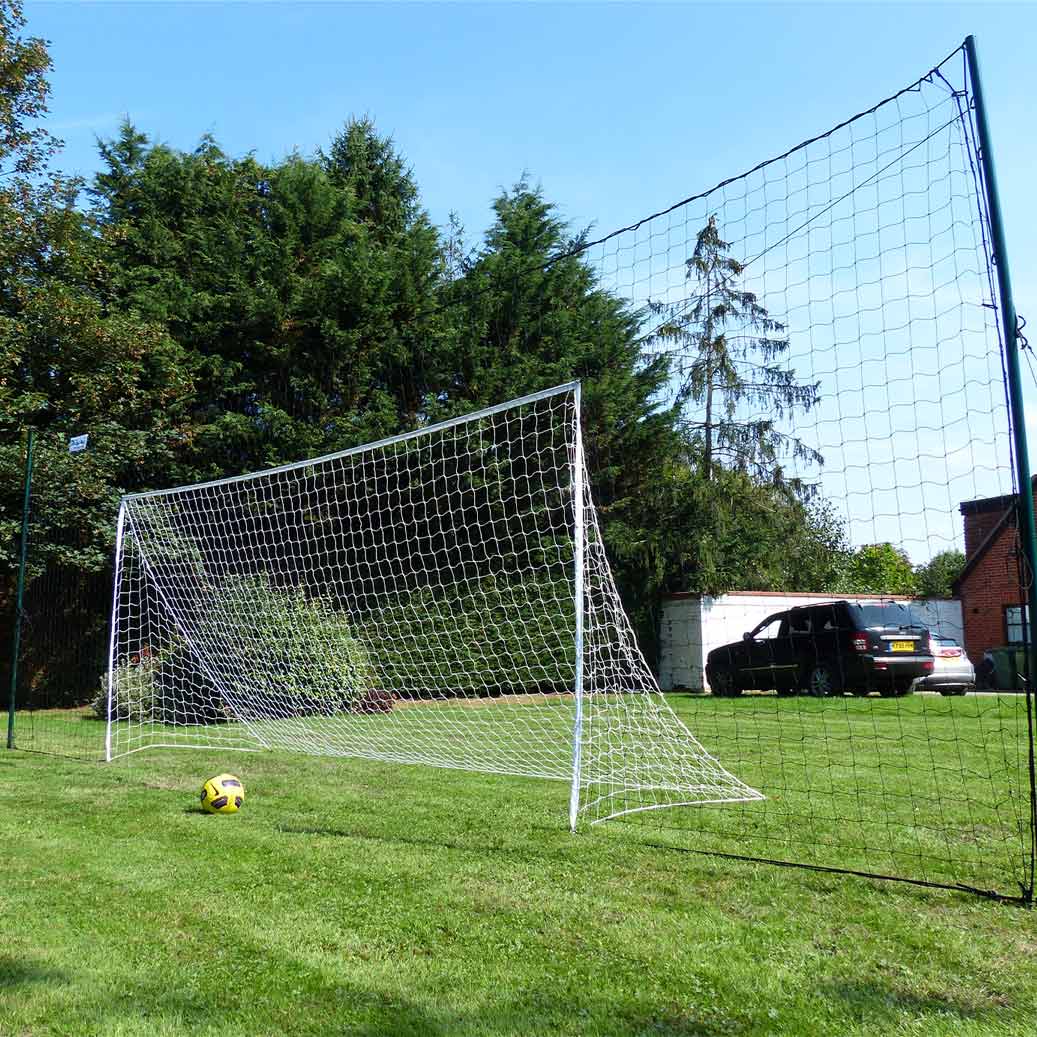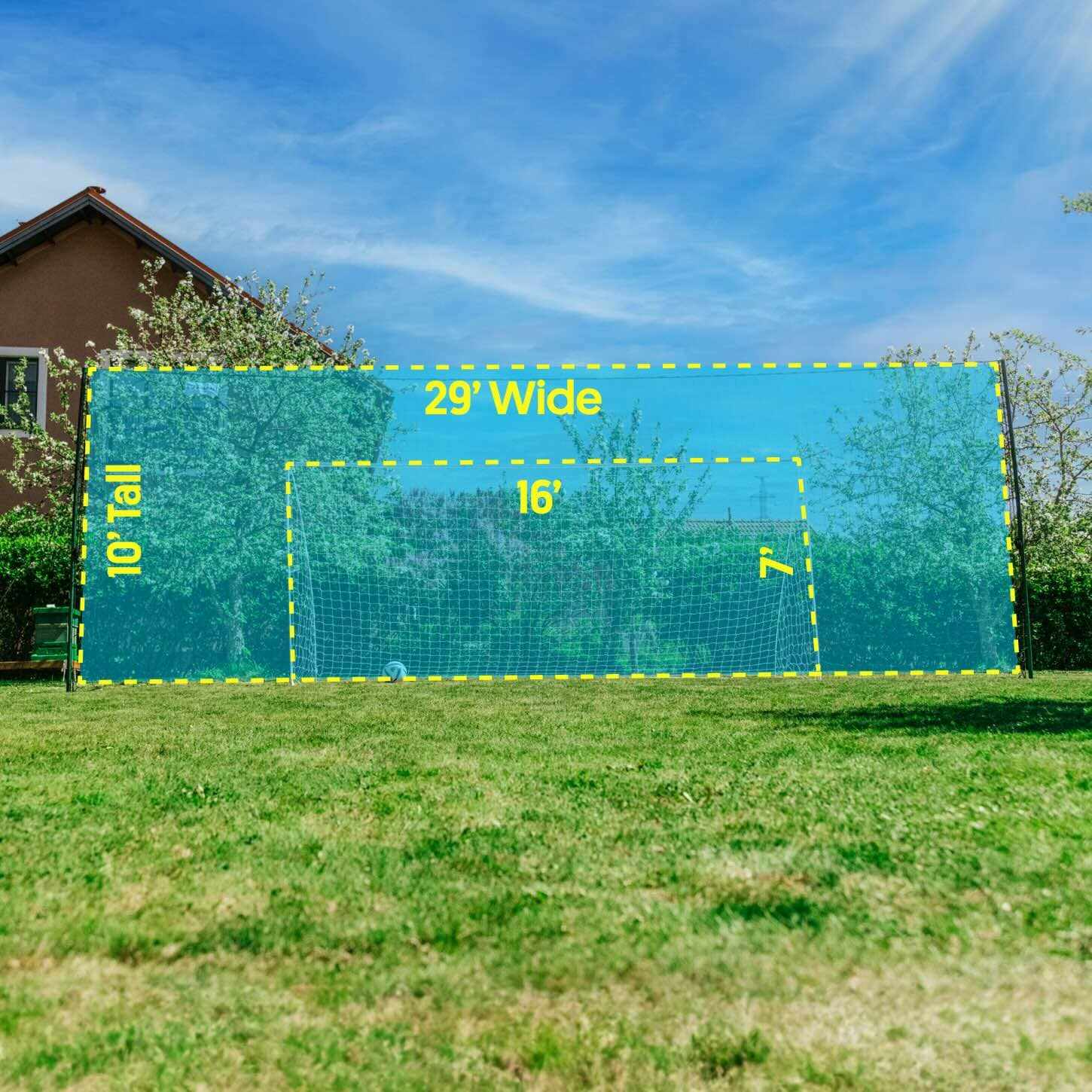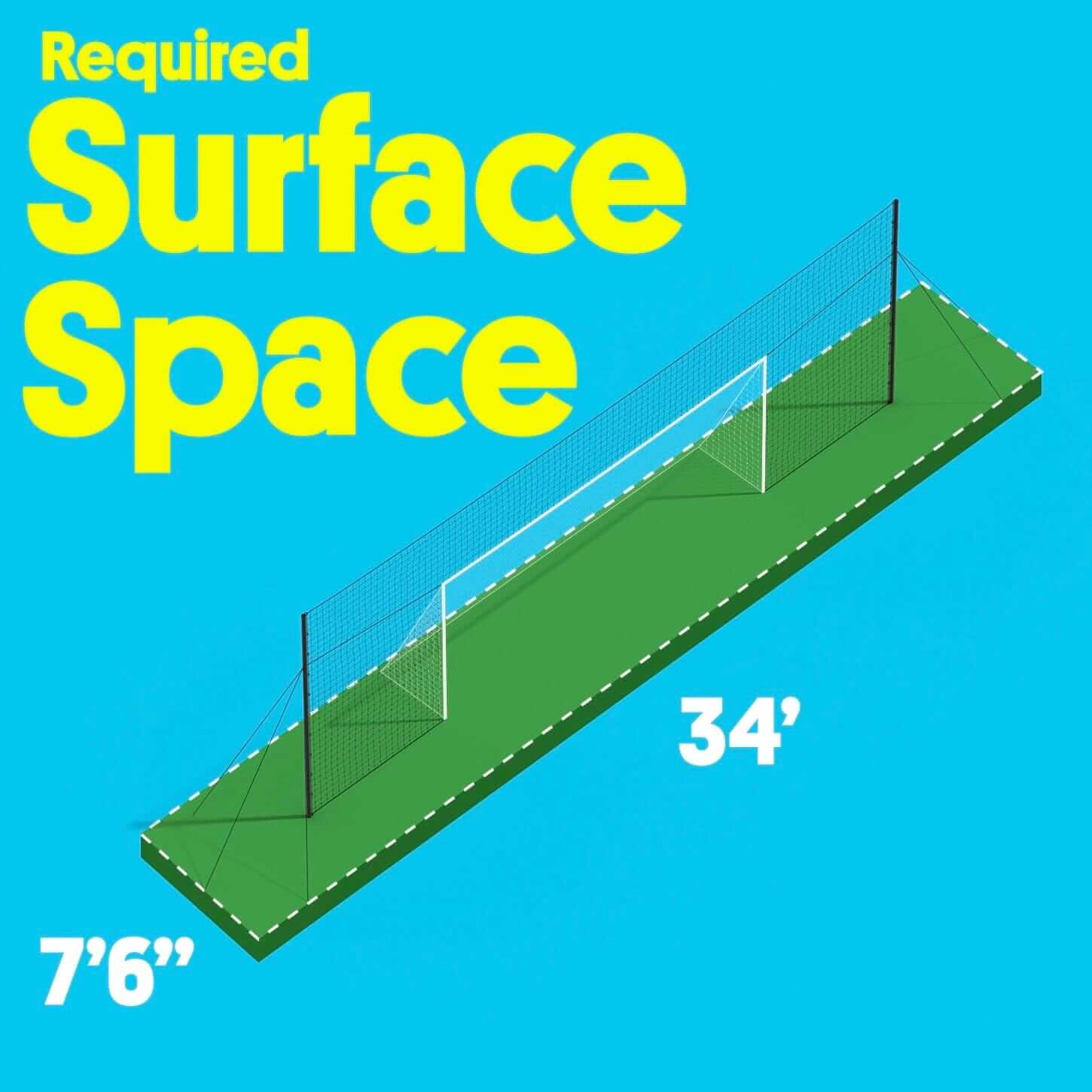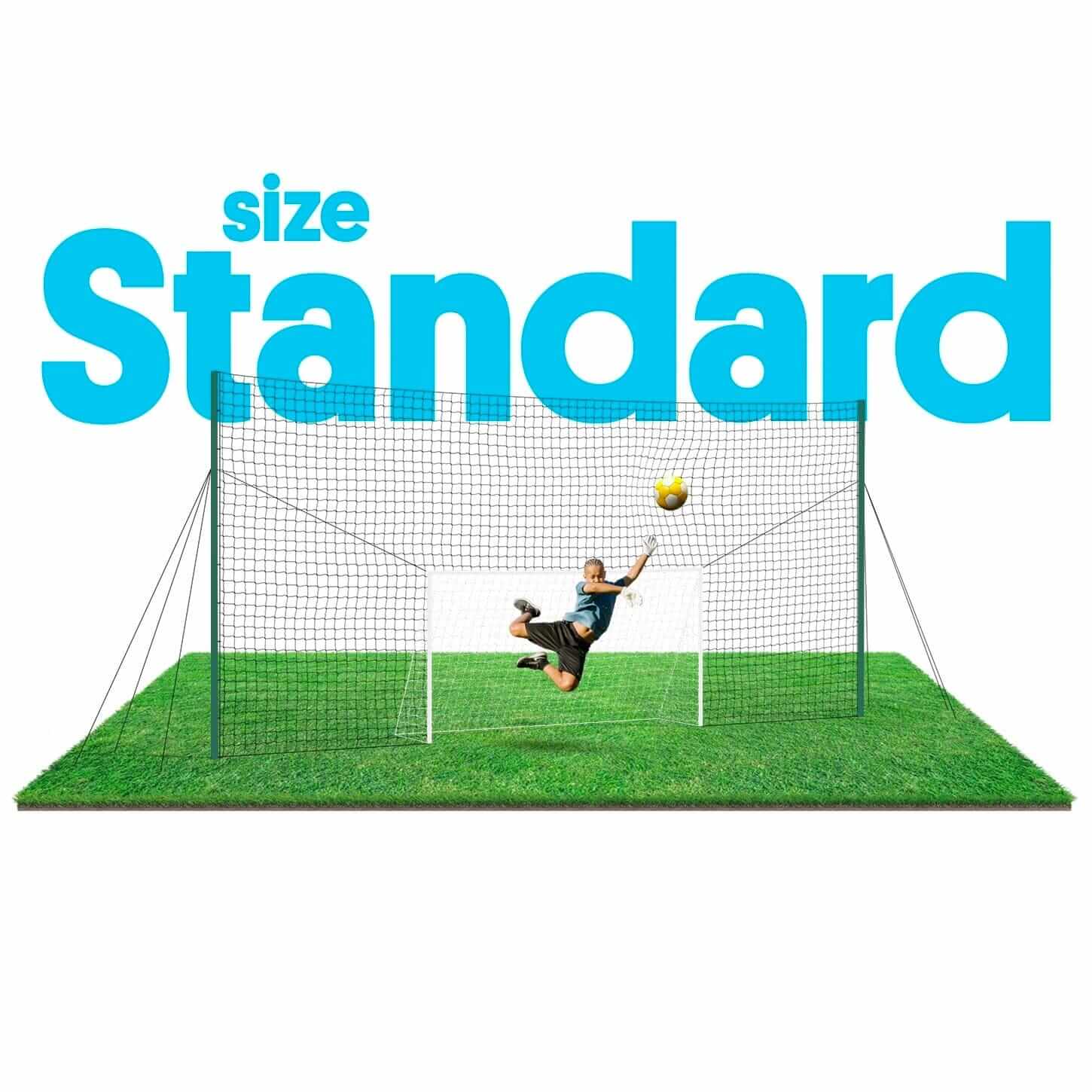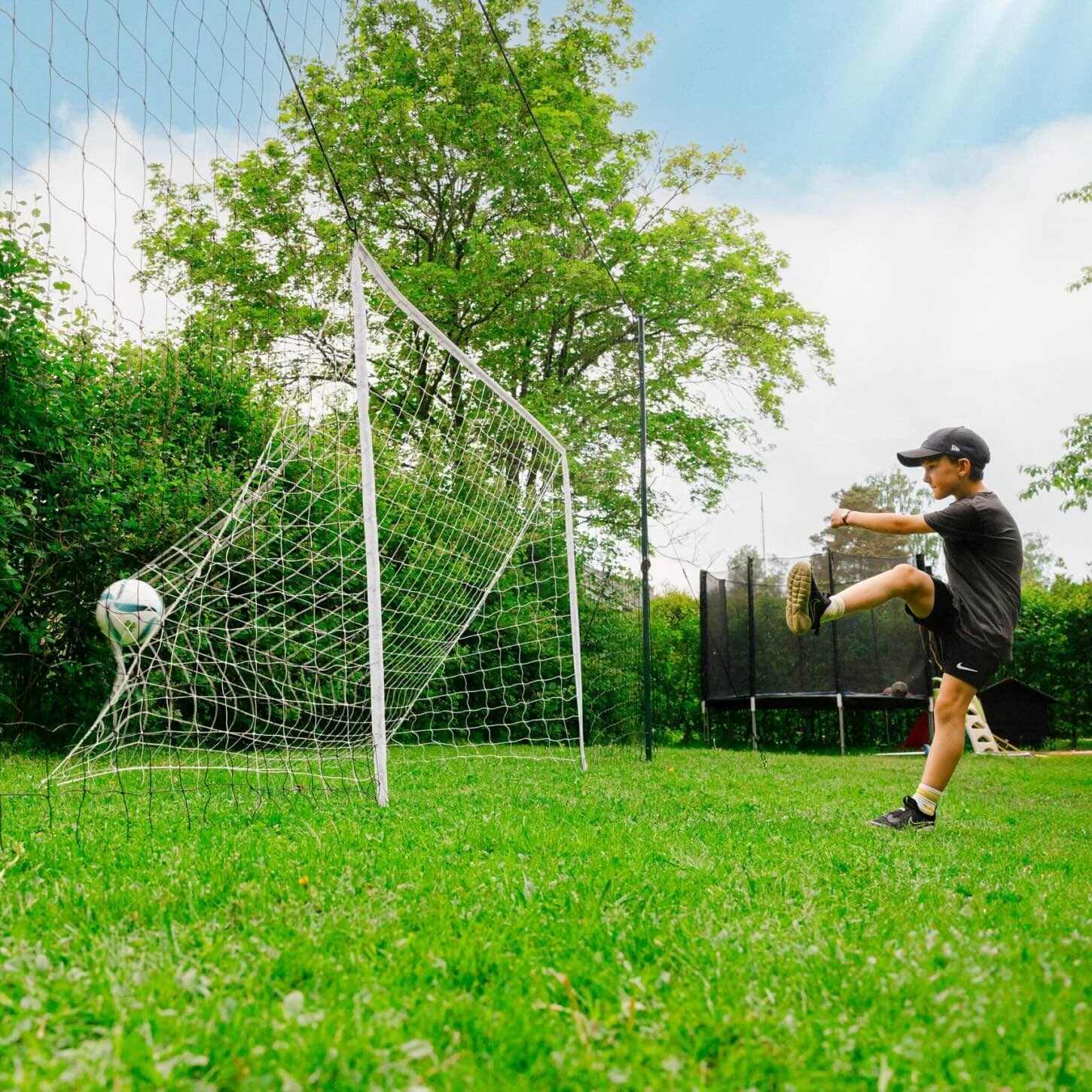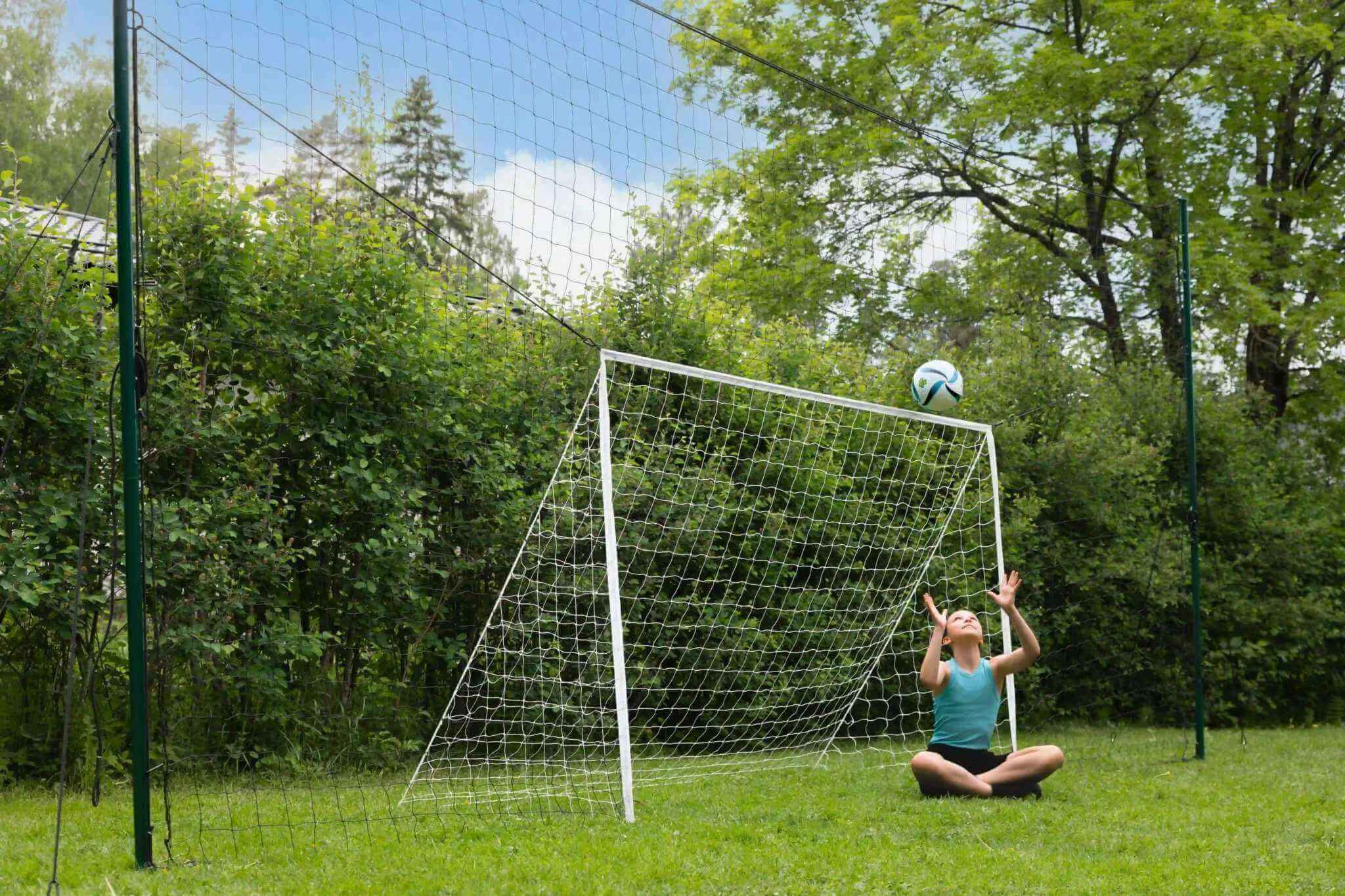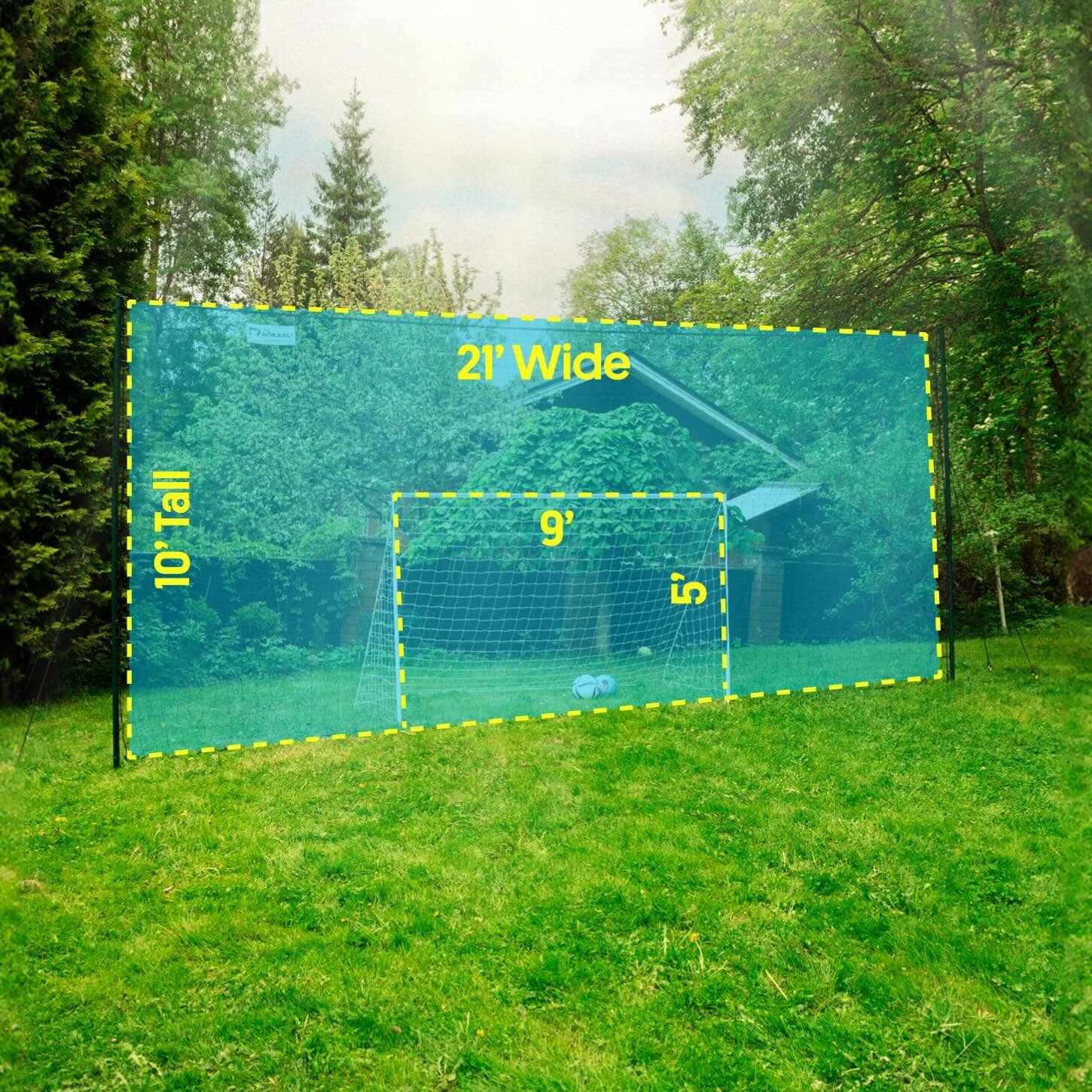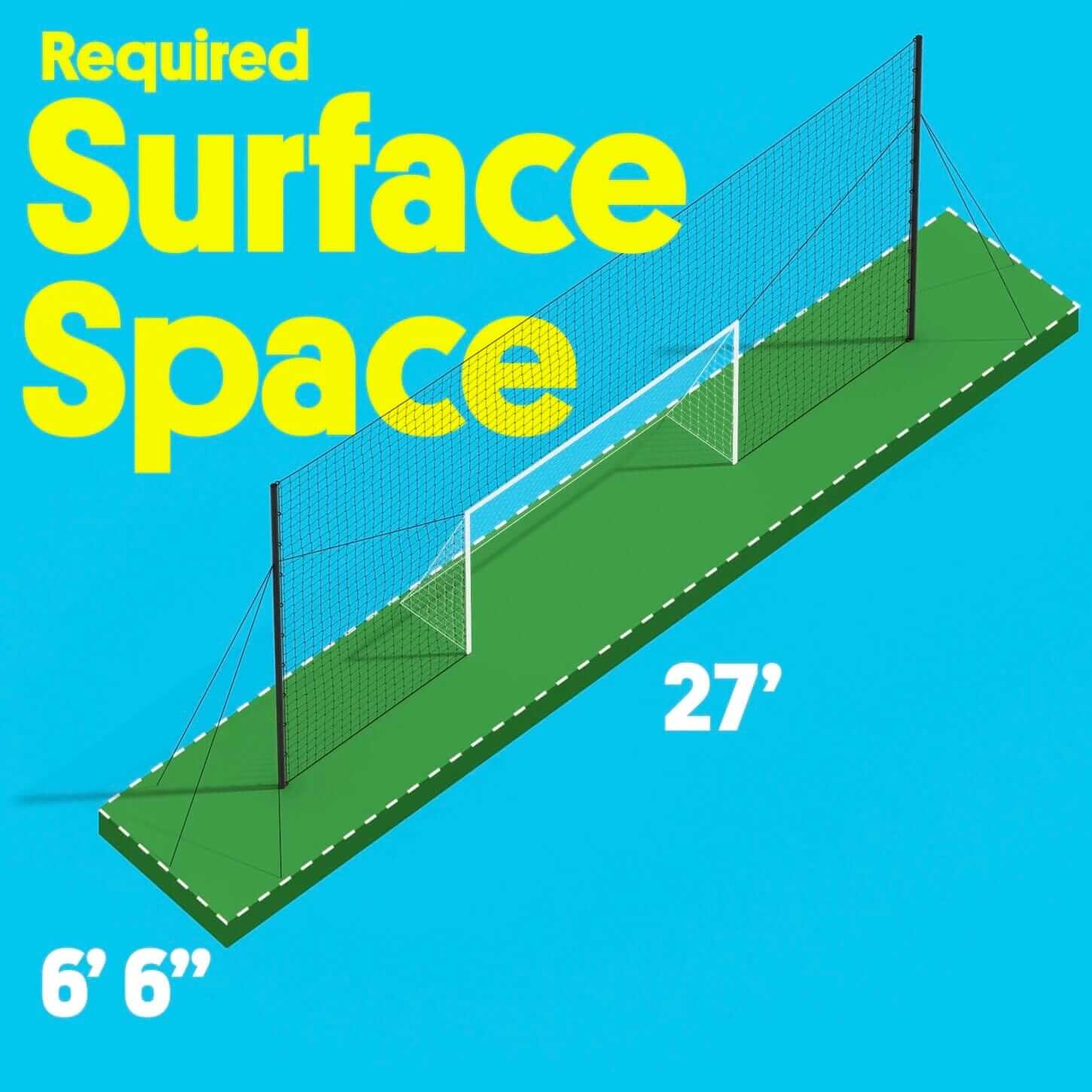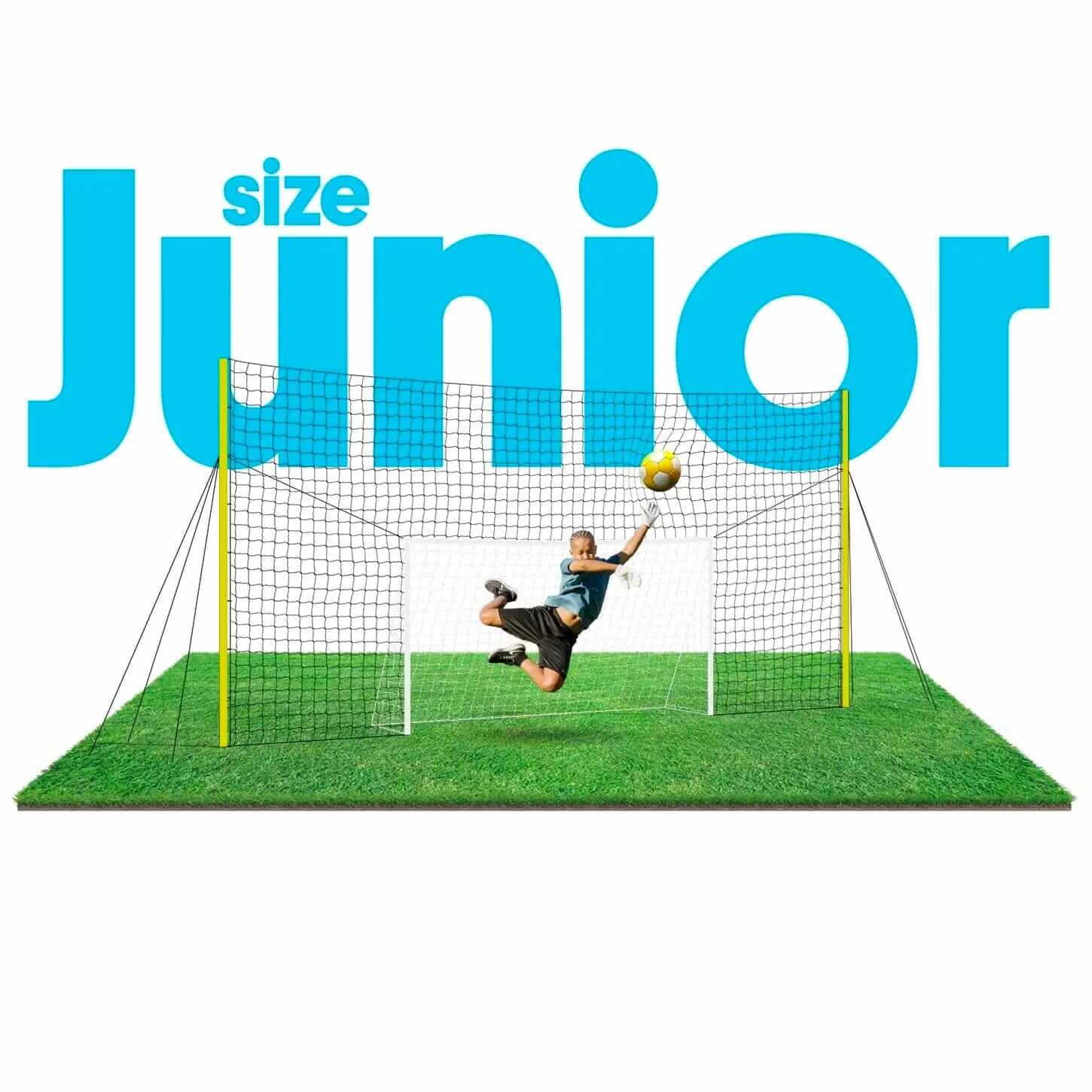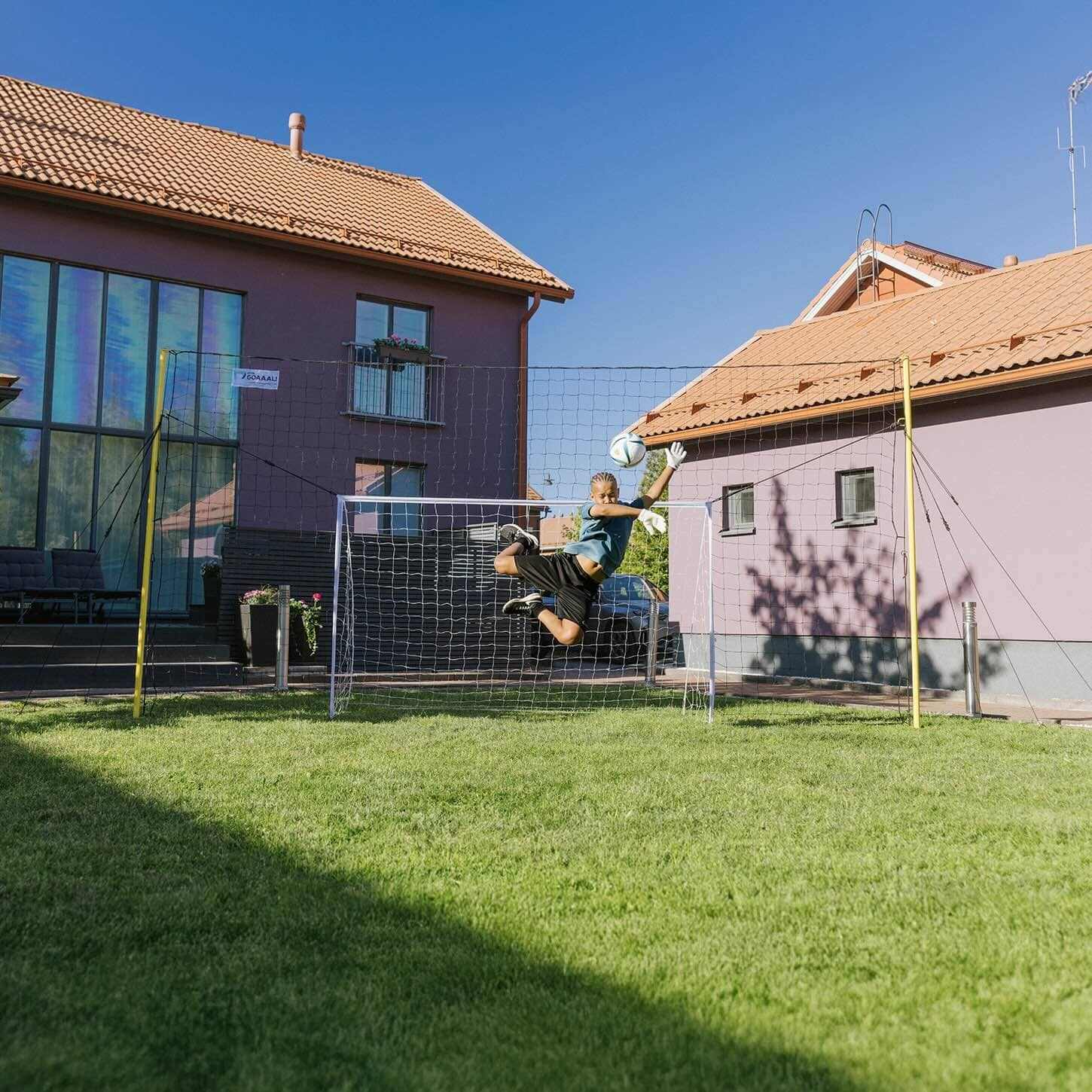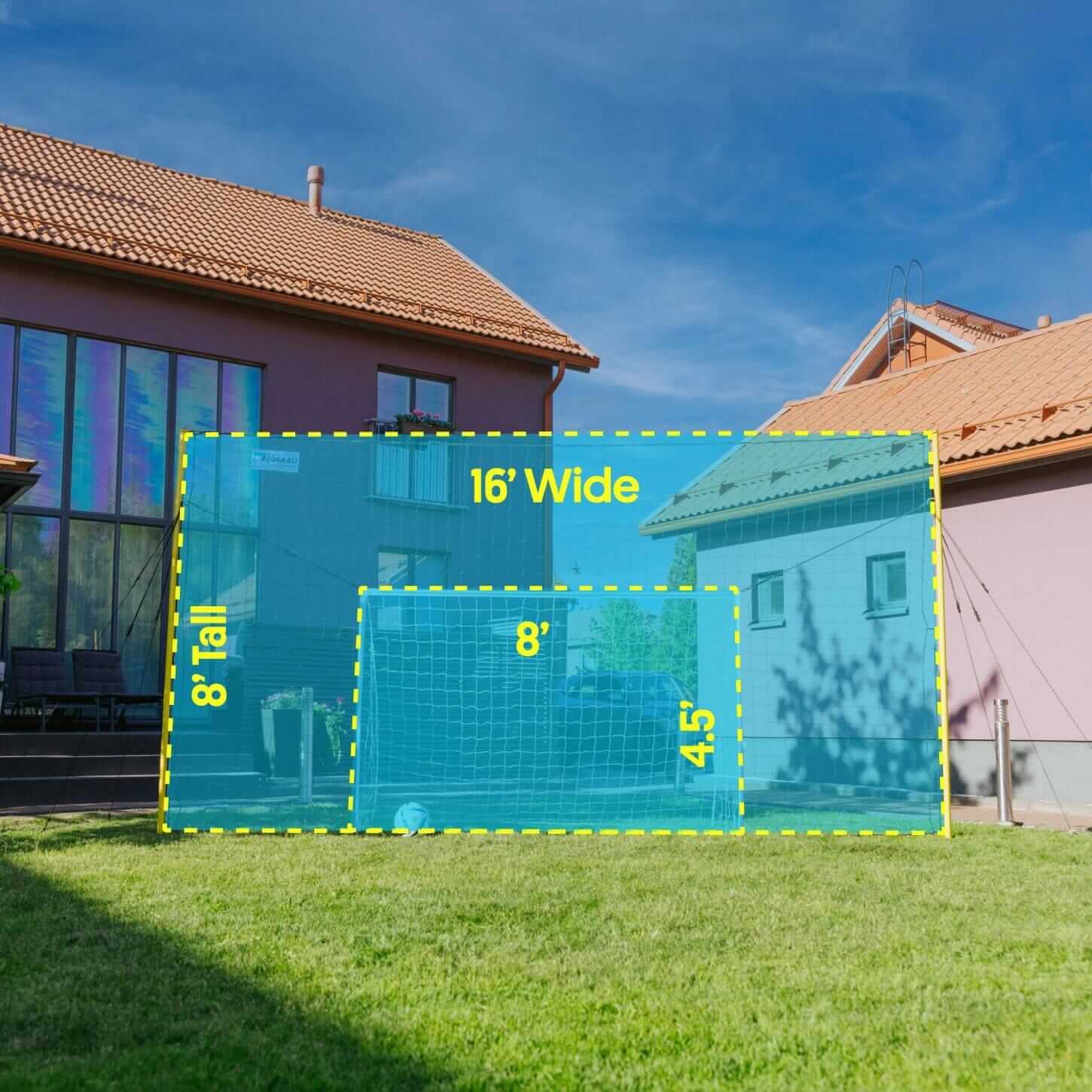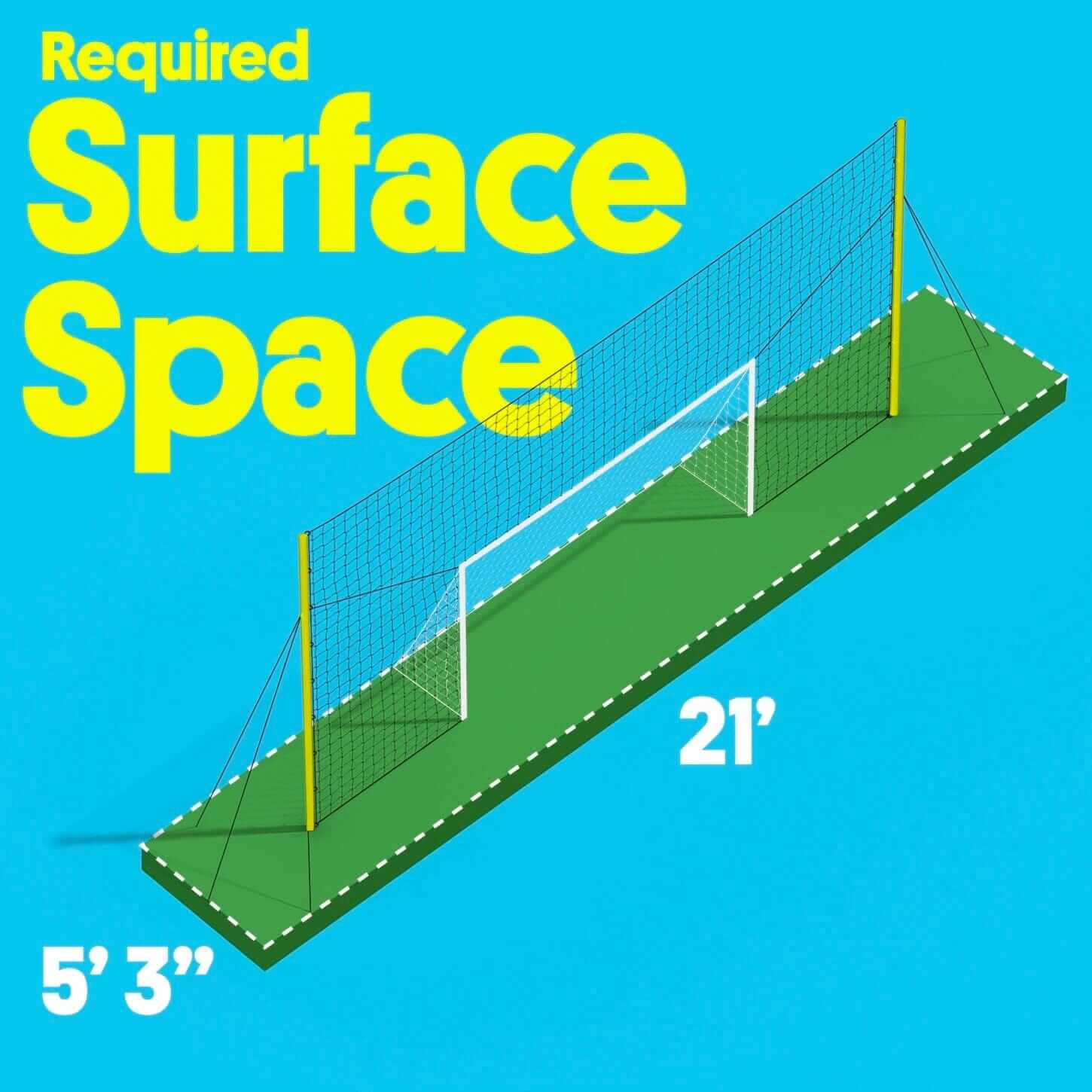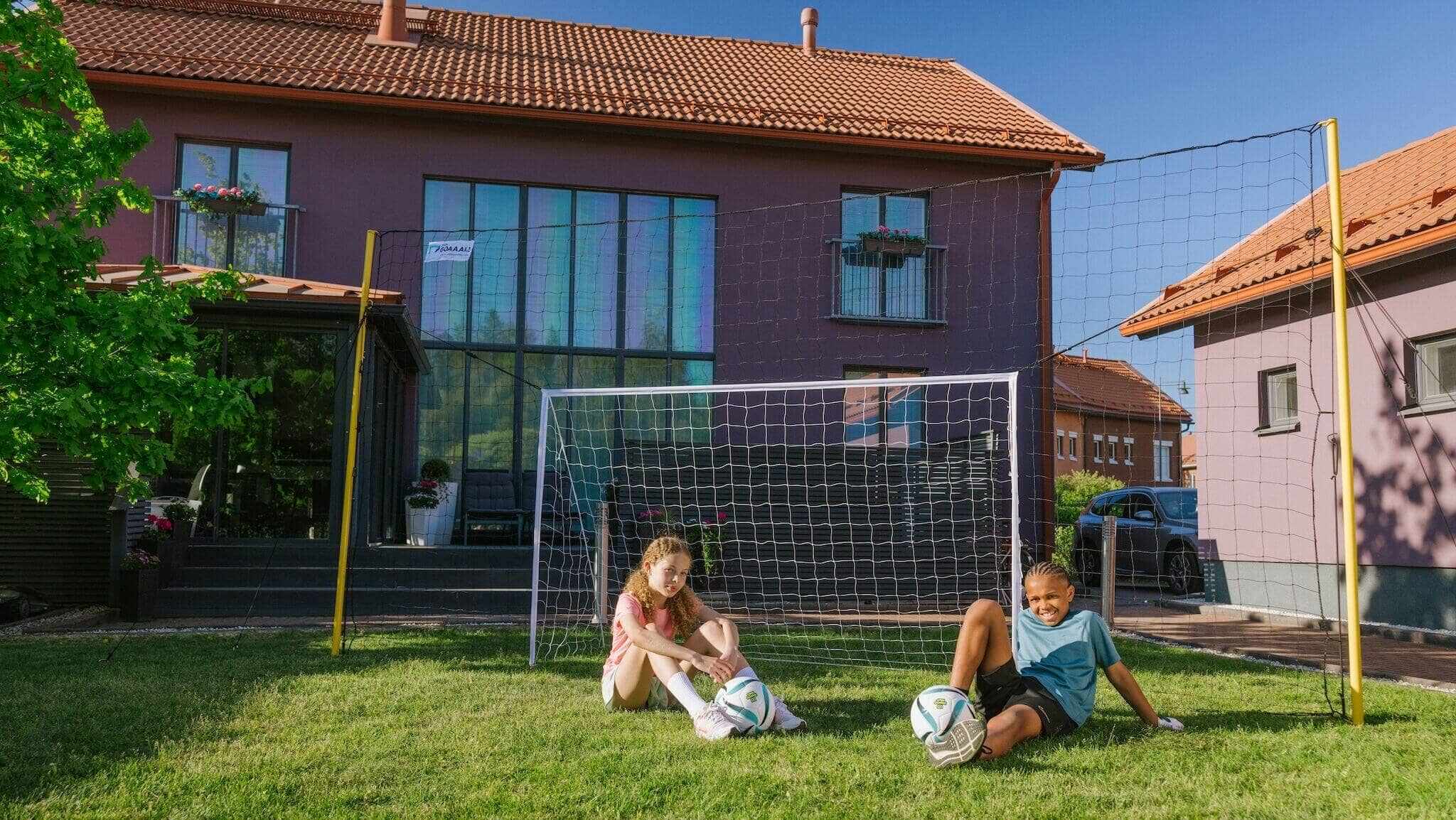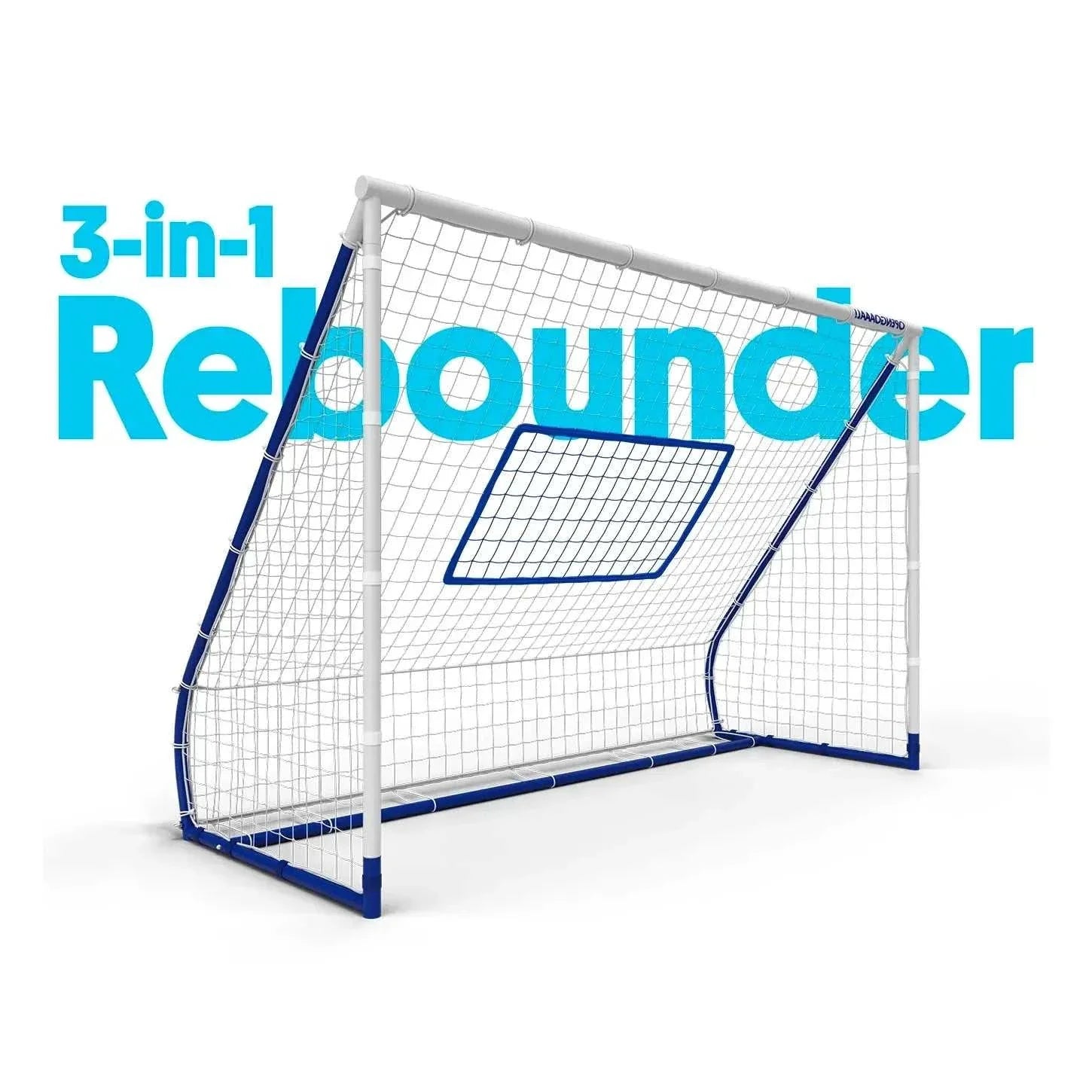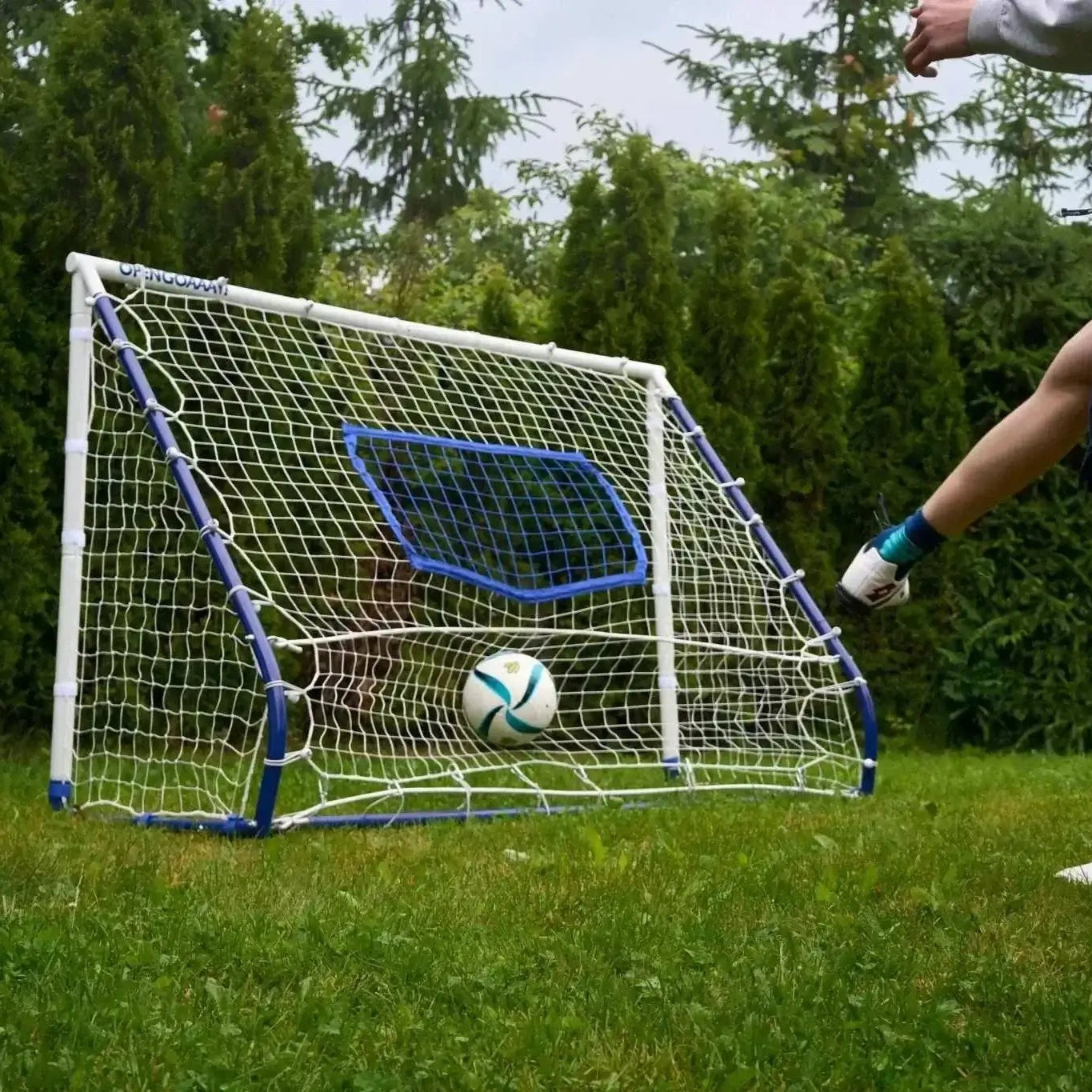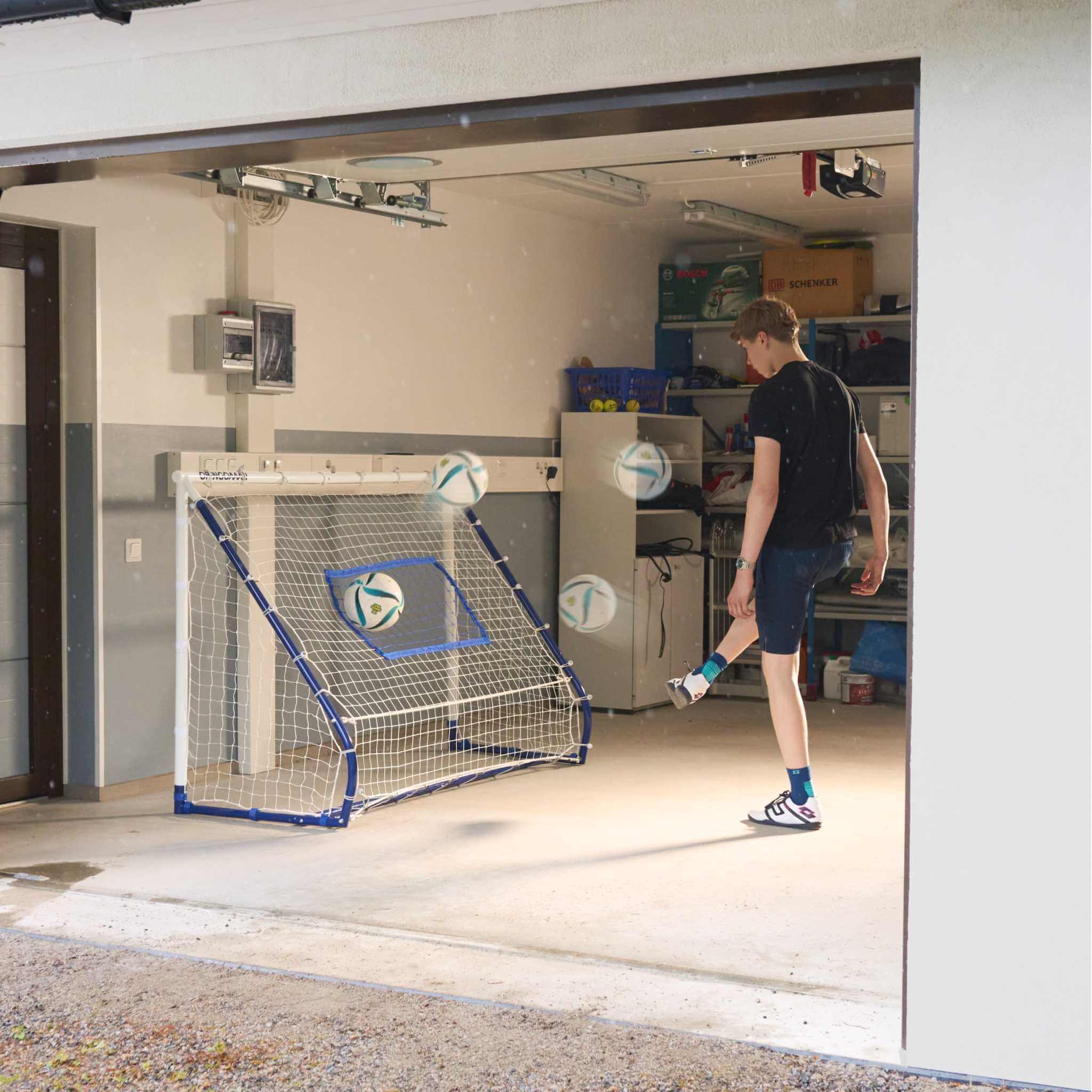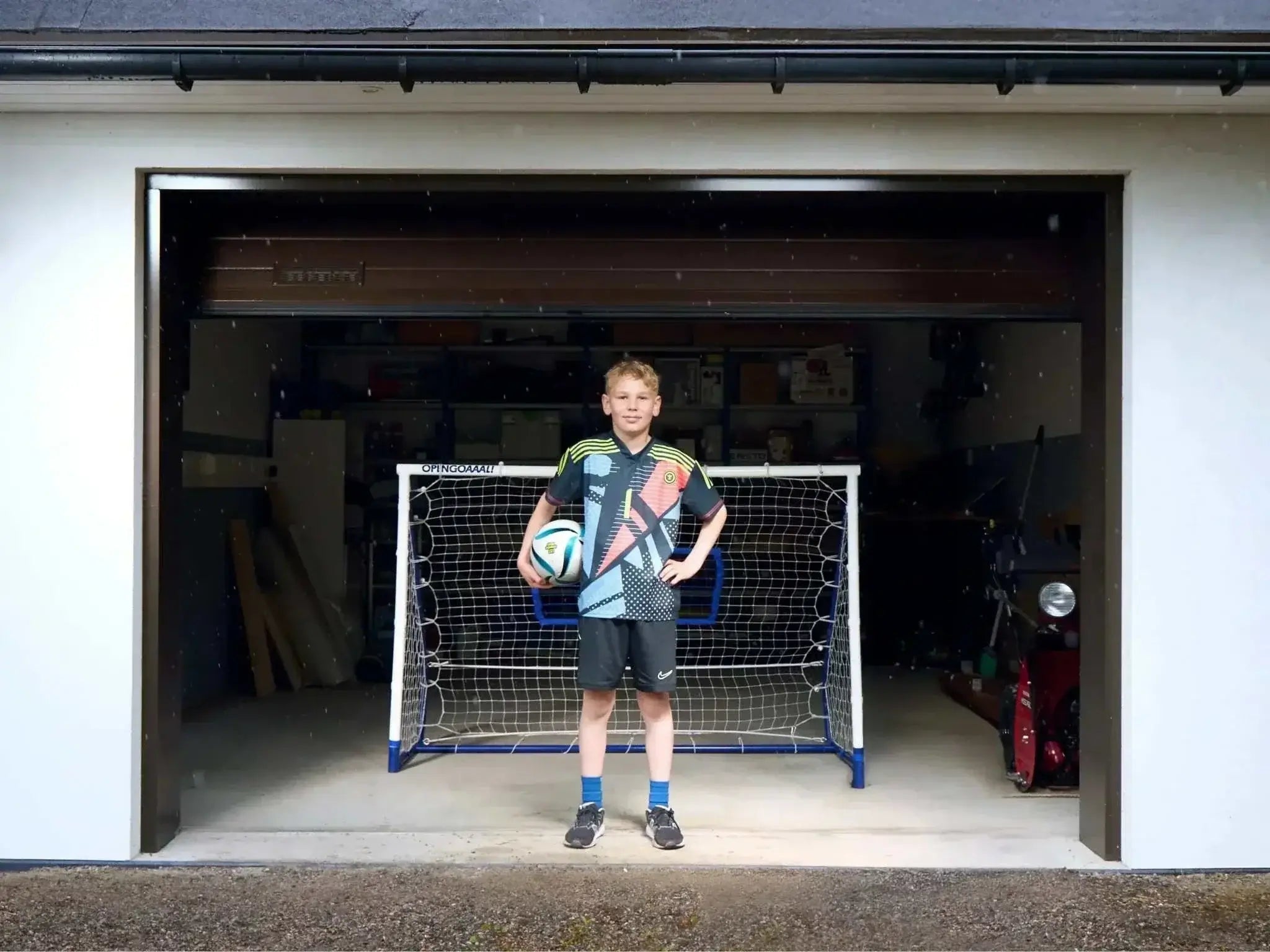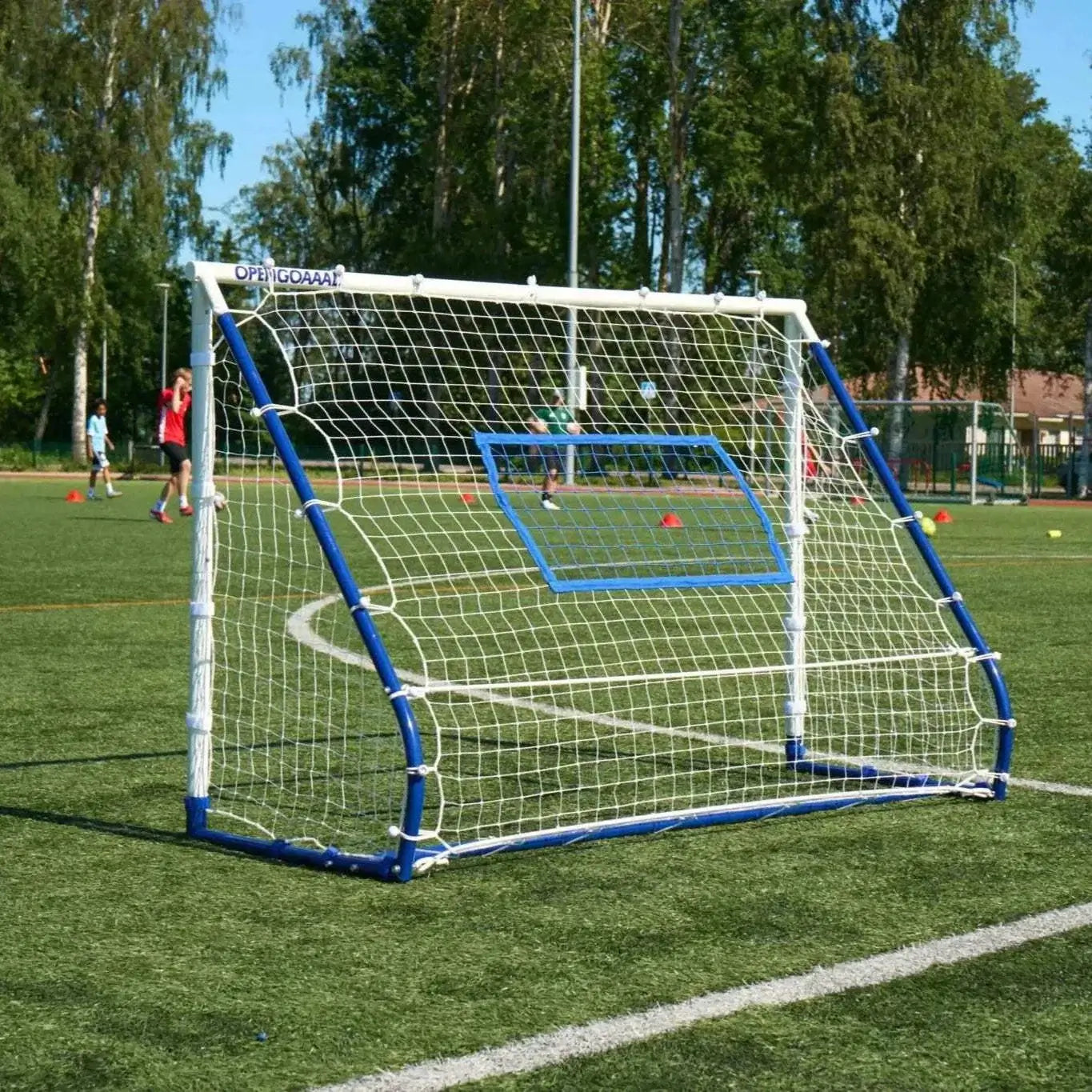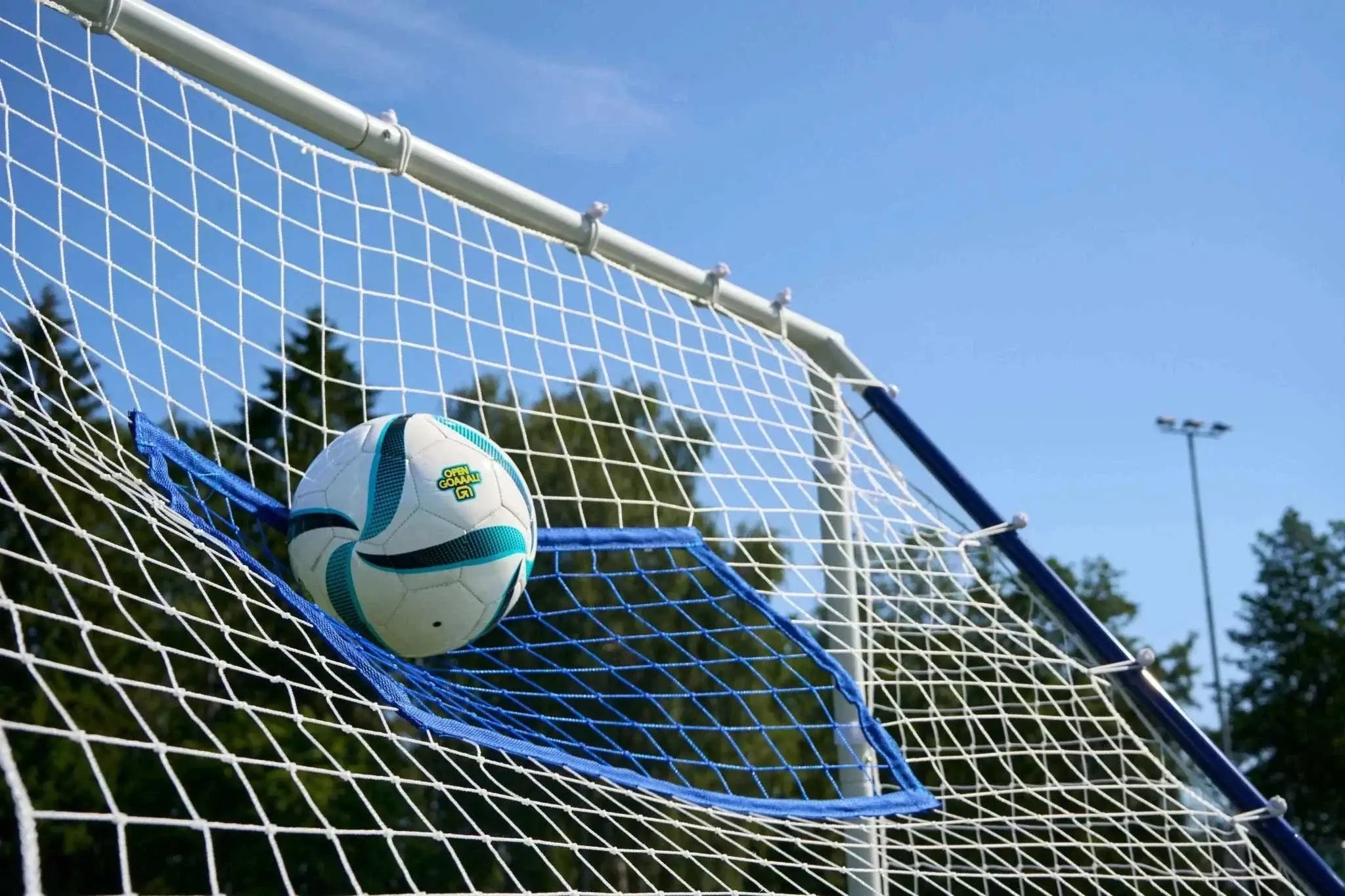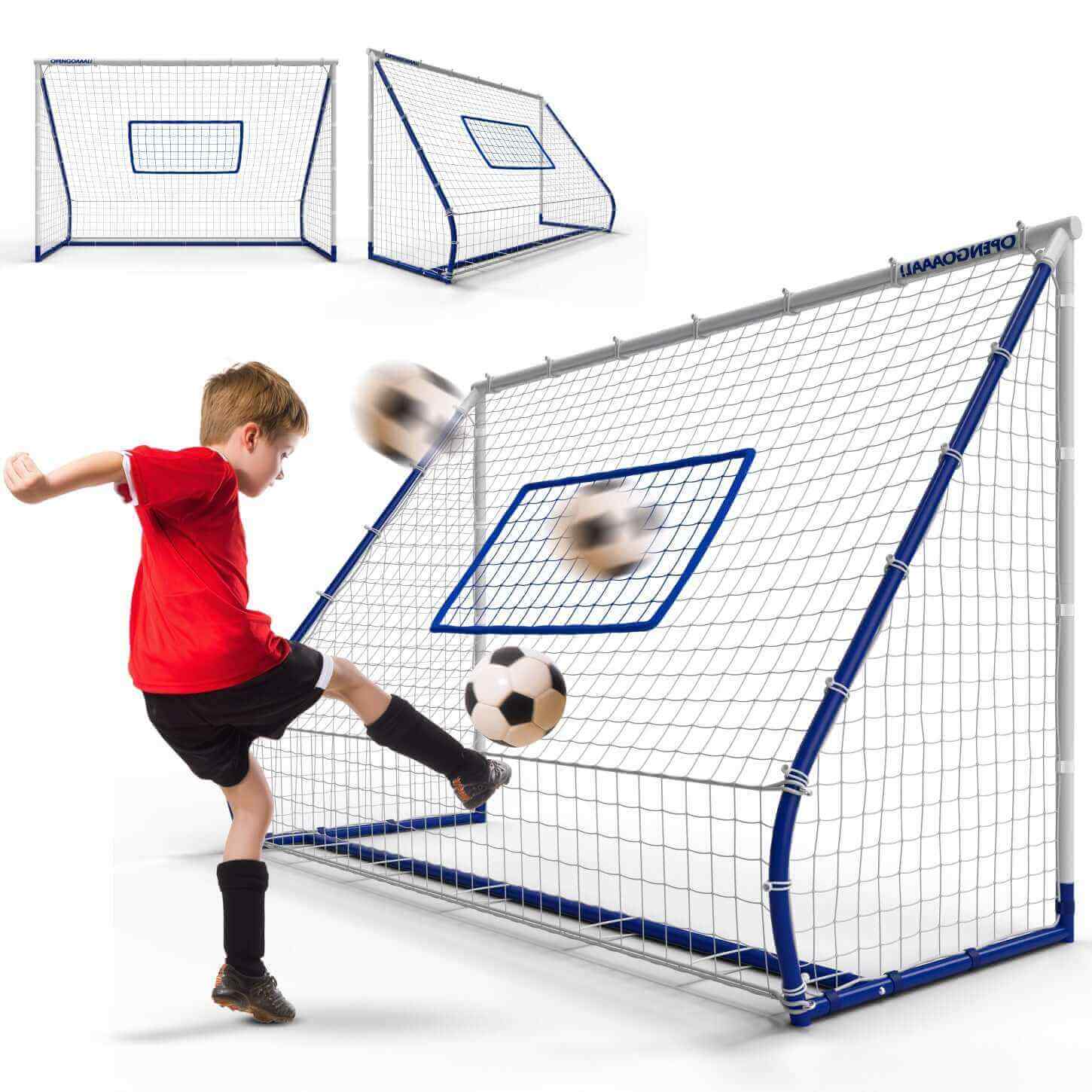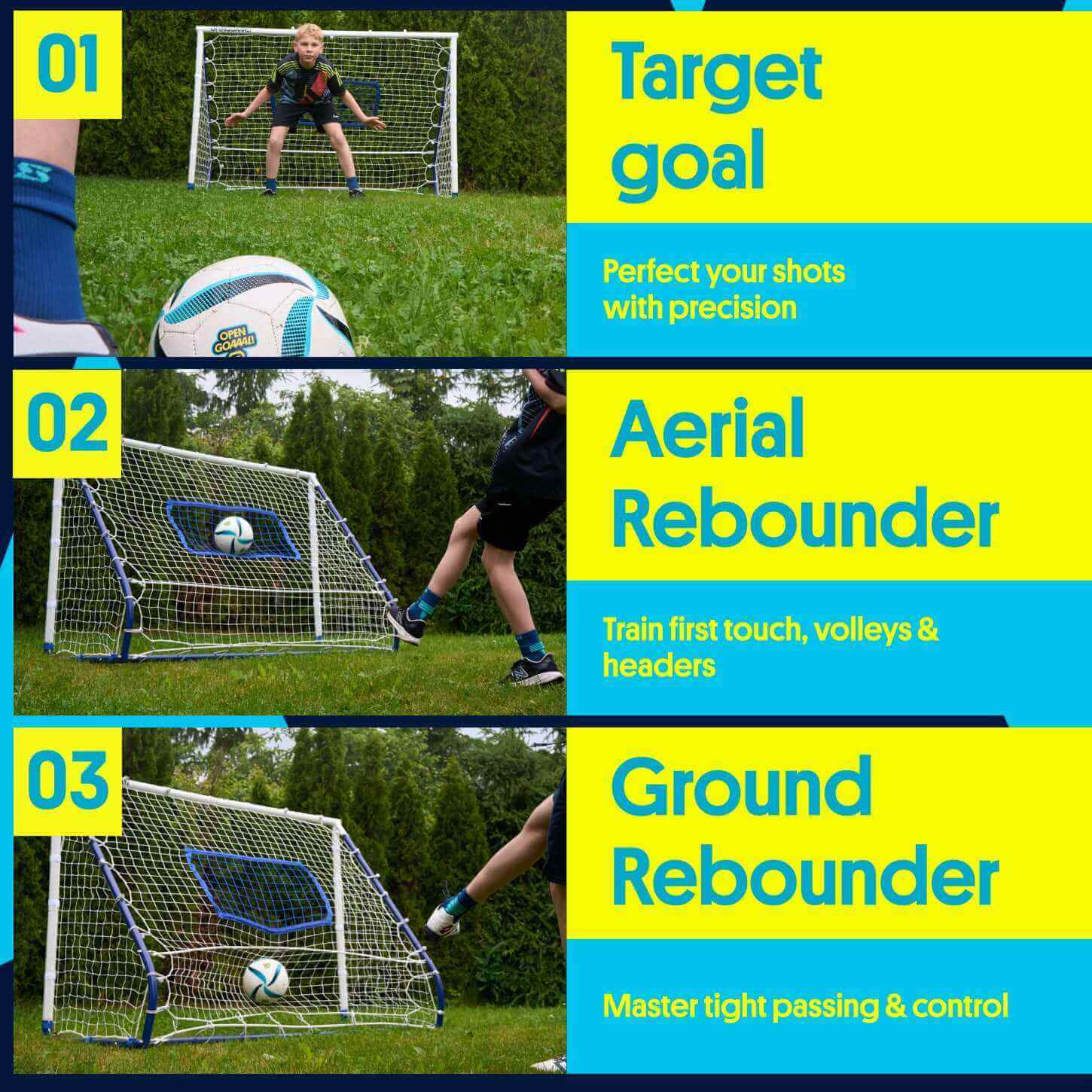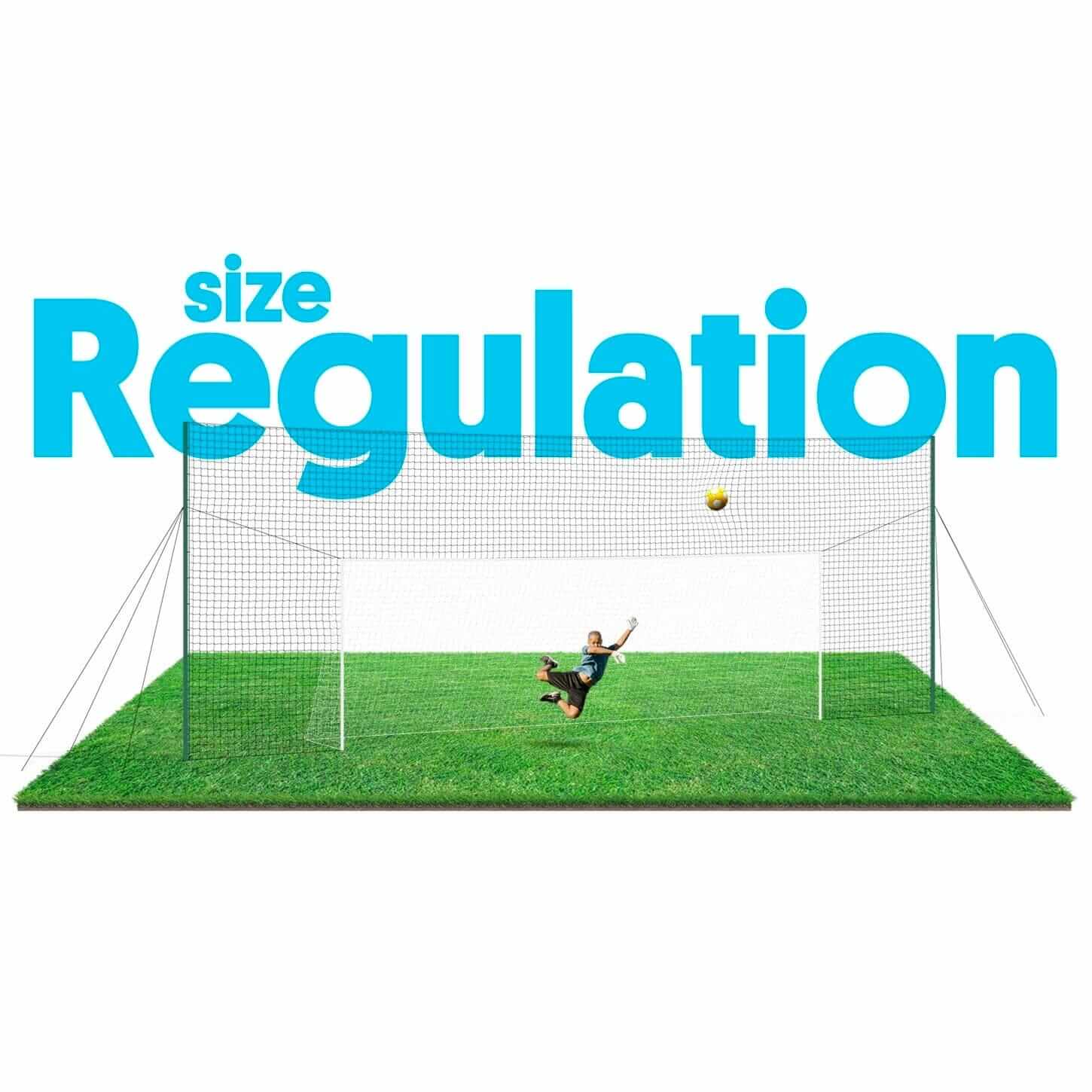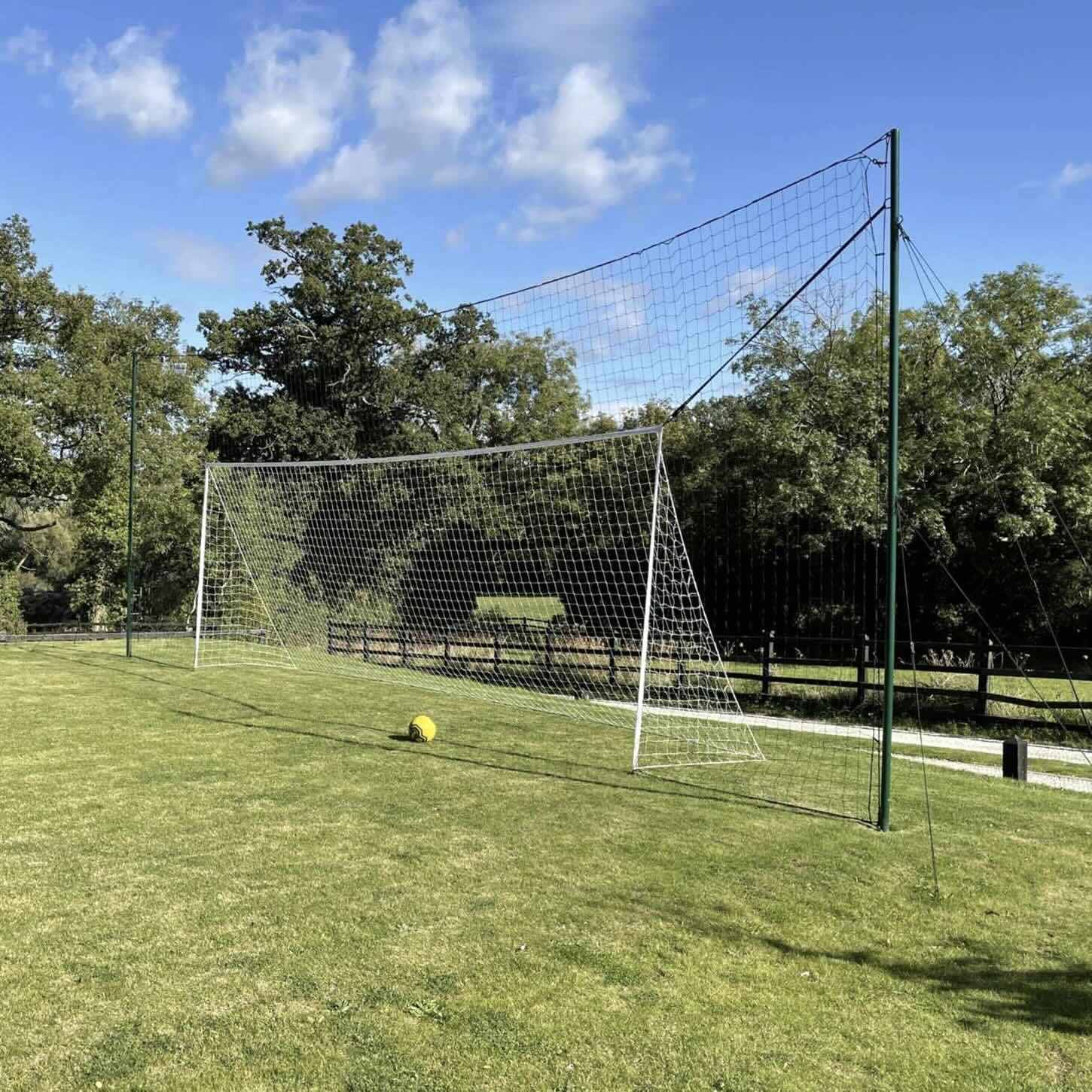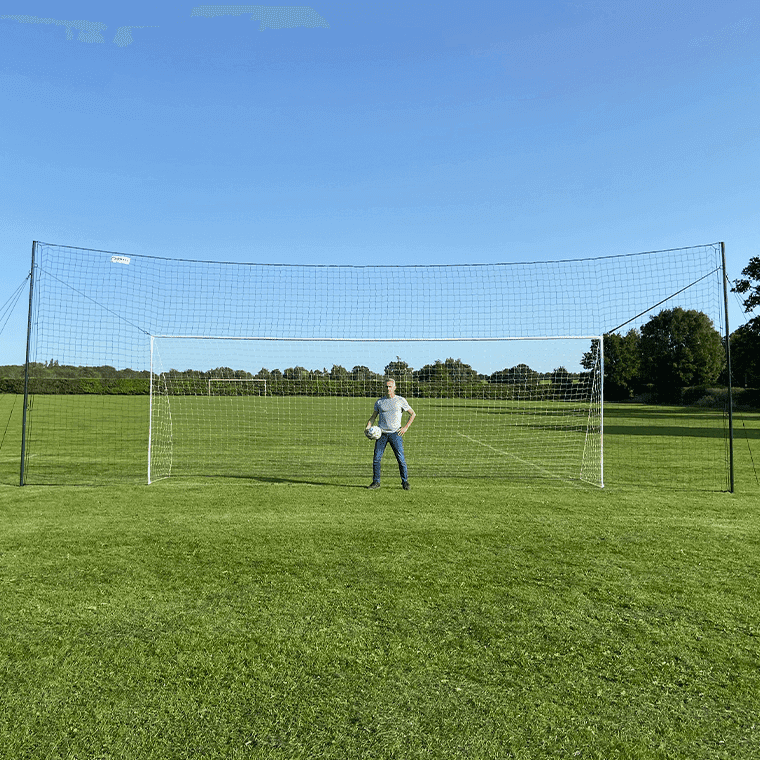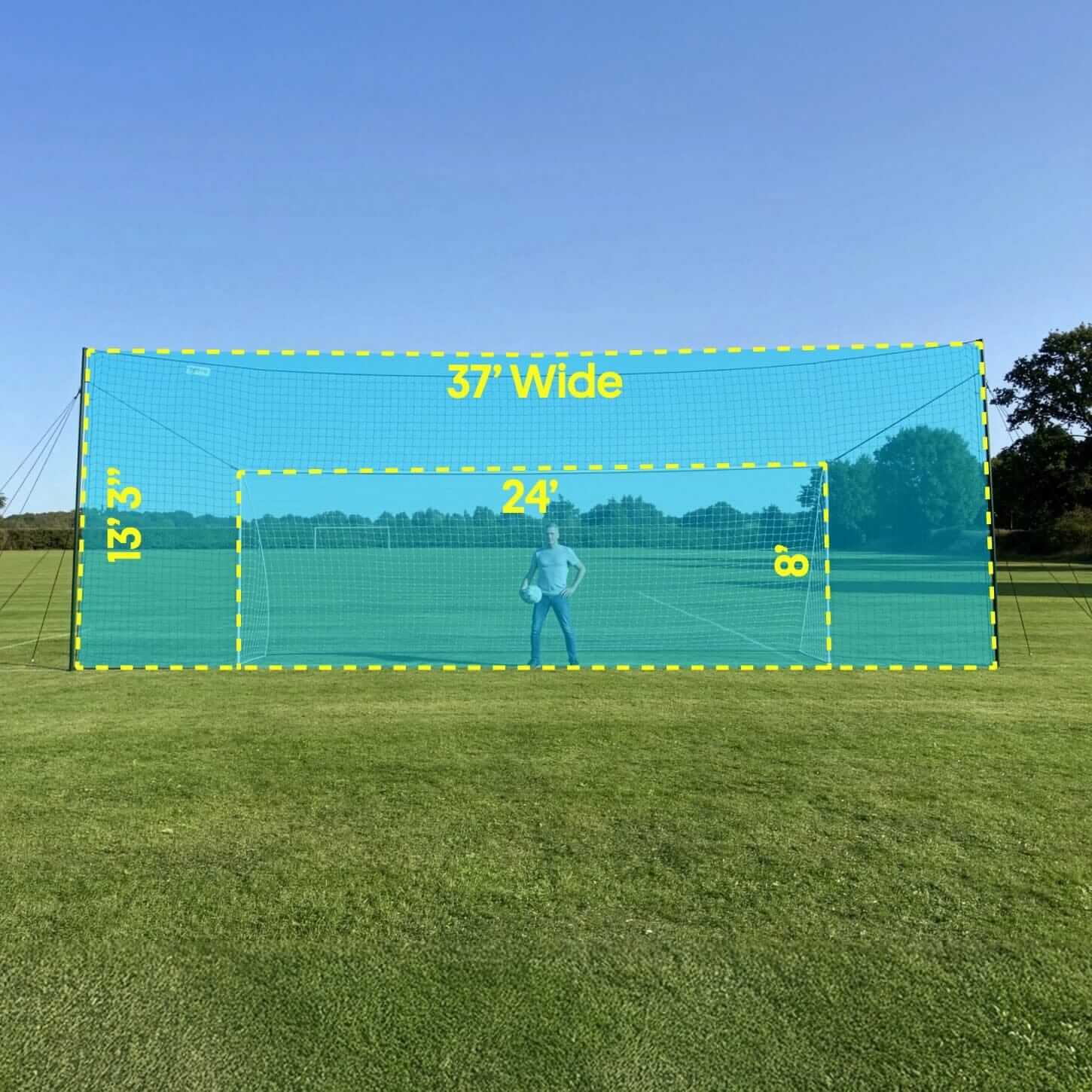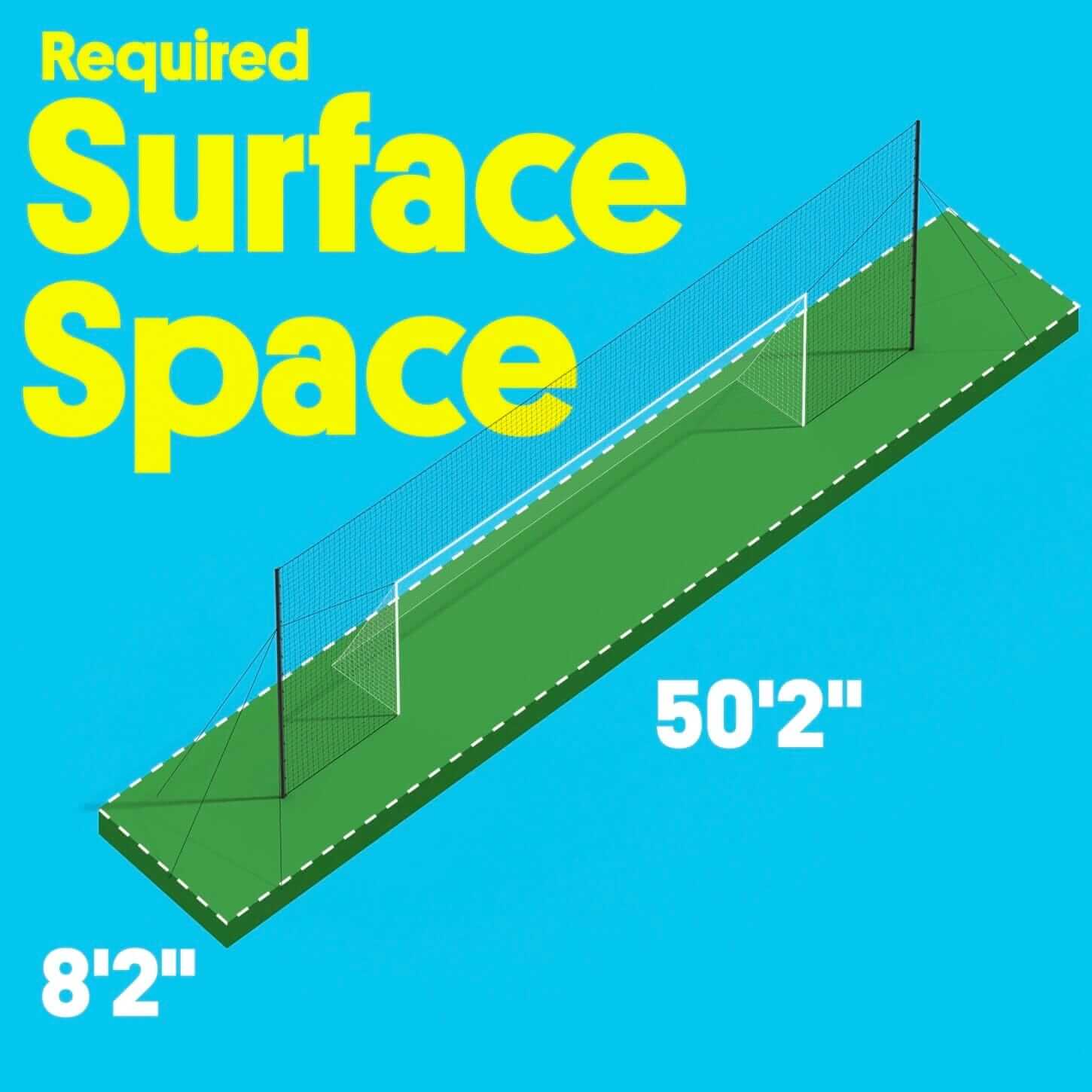For many soccer parents “How old do you have to be to play soccer”? is an important question.
The better question is, "How old should you be to play soccer"?
The fact is, there is no best age to start playing with a soccer ball. Even a child who can balance on two feet can start kicking a soccer ball of the right size at home.
However, organized soccer training as a part of a team might have to come later as your child develops.
Keep in mind that some of the best learning happens in the backyard. The Open Goaaal 3-in-1 Net and Rebounder is a great tool to help your young child learn and progress. Best of all, it comes in sizes small enough for even toddlers to enjoy.
What Is the Best Age to Start Soccer?
The early years of a child are a period of rapid brain growth through processes like myelination and dendritic arborization. These complex processes help children to learn and collect new information quickly and easily. So it is better to start playing soccer at an early age.
The age between 3-5 years is too young for playing competitive youth soccer. At this stage, they get a feel for kicking the soccer ball around and learn to have fun.
When the kids are between 6-7 years of age, it is time for them to learn the fundamentals of soccer. They can also start doing basic soccer drills to improve speed and stamina.
It is best that players start playing competitive soccer when they are 8 years old. But even if your kids want to start playing soccer when they are 8-9 years old, there is no need to discourage them.
The level of interest that young players show between 5 to 12 years of age determines whether they want to continue as professional soccer players.
What to Consider When Preparing Your Child to Play Soccer
In the early stages, parents should allow the child to develop a liking for the game without focusing on competition and physical training. This involves allowing them to move and control a soccer ball. Make sure to choose the right soccer ball size.
Kids can start as early as the age of 3 at home by moving and kicking the soccer ball. Once they are over 5 years of age, they will have more control over their bodies. This is the right time to introduce them to the actual game of soccer.
Note, children between 6 to 14 years of age tend to have more concussion-related injuries while playing tackle football. For this reason, the United States Soccer Federation has banned headers for players below 10 years of age.
So, parents and soccer coaches should ensure that school soccer teams have a necessary concussion safety policy in place.

Benefits and Disadvantages of Beginning Soccer at Various Ages
In reality, one can start playing soccer at any age. However, the kid’s age determines the level of practice and training they should be exposed to.
Ages 2 to 5
Practicing with a soccer ball at home from a young age can help in developing the motor skills of a child, including coordination and balance. Preparing for kids’ soccer also helps them to learn the basic concepts of teamwork.
However, it is still too early to determine if your kid has a genuine interest in the game of soccer. They may lose interest after they cross the age of five.
Ages 6 to 9
At this age, the kids have more physical ability and can learn basic soccer skills like passing and dribbling.
Soccer can be a great way to keep them active and burn off any excess energy. Dedicated soccer practice at this age can also make them more inclined toward becoming professional players.
On the other hand, the hard work at a soccer academy might cause them to lose motivation. Besides, children in this age group are more vulnerable to injuries. So,
Age 10 Plus
This is the age when the players enter the advanced stages of the game and start developing skills and techniques. It is also when parents typically begin to choose a local soccer club that is a good fit for their kid. Since the game gets more competitive at the high school stage, they need focused training.
Serious involvement with soccer also helps the kids to learn about teamwork and self-discipline. If your kid has the right level of skills, they can also apply for a college soccer scholarship.
At the same time, the performance pressure on the soccer field can become a burden for young players. This can leave less time for studies and other responsibilities.
For the parents, arranging for soccer academy admissions and buying soccer gear like cleats, shin guards and gloves for goalkeepers can get expensive.
How Old Do You Have to Be to Play Soccer ? Tips for Parents
Thinking about if it is the right age for your kid to start soccer? Here are a few tips that will help you to find the answer.
- Let the kids practice with a ball at home. This will help you understand the type of activity they prefer- kicking, throwing, or catching.
- The most important thing is to ensure that soccer remains a positive experience for the kids. At no point should the game be forced on them.
- If your child shows interest in soccer, encourage them and find the right coach to teach them the right techniques. Remember, you are not the coach.
- Make sure to learn the fundamentals of soccer so that you can understand the role your child is playing in a team.
- Spend some time using the game of soccer to connect with your child and have fun.
Final Thoughts
Hope that answers the question “How old do you have to be to play soccer ?”
Playing soccer in the right way from an early age can have an immensely positive impact on your child.
However, it is not necessary to enroll your kid in a soccer camp at the very first stage.
To make the backyard soccer sessions more productive for your kid, pick the Open Goaaal 3-in-1 Soccer Trainer and Rebounder.
With this trainer, you do not have to chase the balls or repair the damaged fences. For uninterrupted practice and more fun, the Open Goaaal trainer is a great investment.




